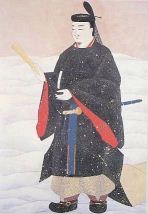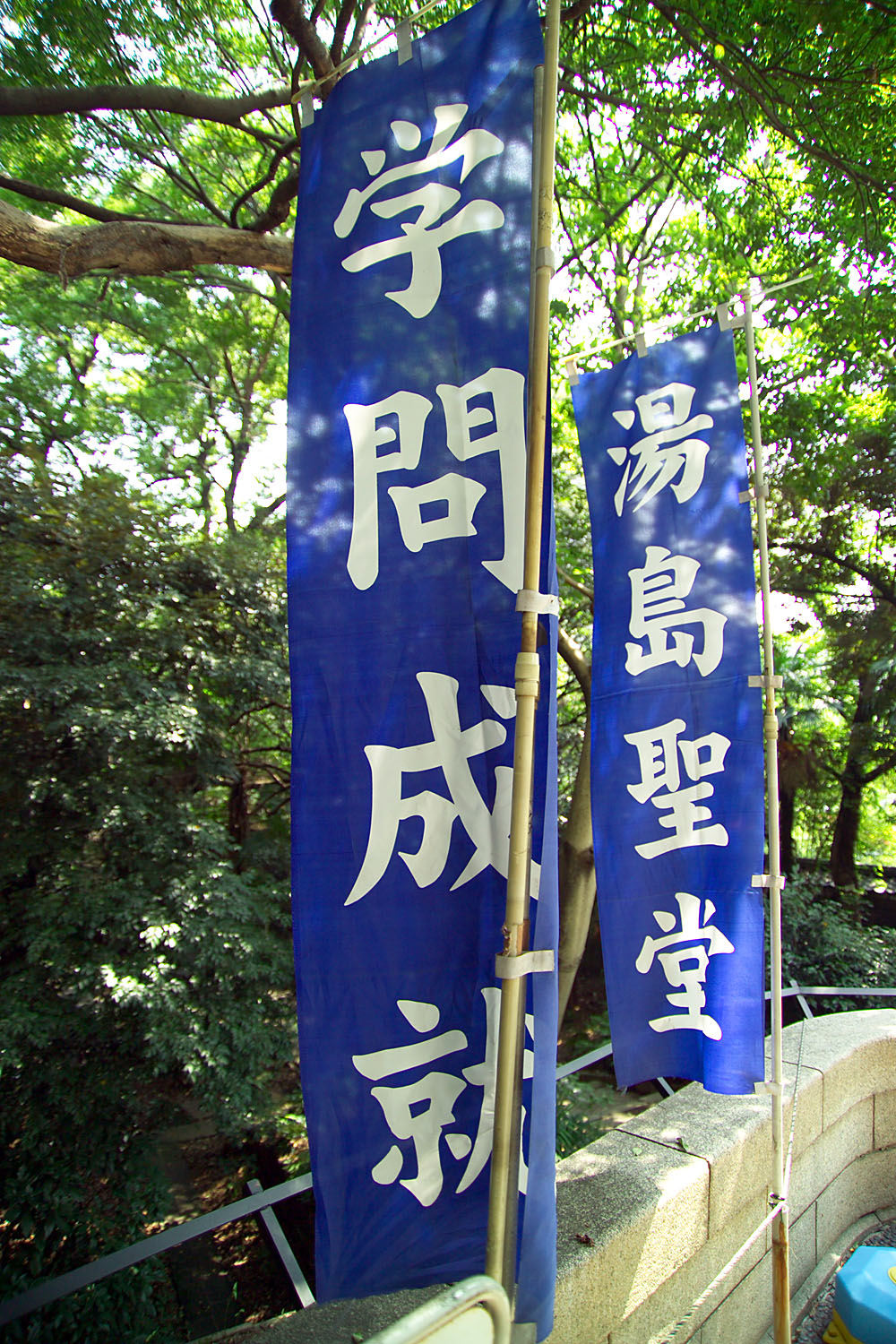|
Takatsukasa Morohira
, son of Fuyuhira, was '' kugyo'' or highest-ranking Japanese court noble of the Muromachi period (1336–1573). Fuyunori adopted him as a son. Morohira held the office of '' kampaku'' from 1342 to 1346.Titsingh, p. 297. * 1342 ('' Kōei 1, 1st month''): The '' kampaku'' Ichijō Tsunemichi lost his position; and Morohira took on this role. * 1346 ('' Jōwa 2, 2nd month''): Morohira was relieved of his duties as ''kampaku''; and he was replaced by Nijō Yoshimoto , son of regent Nijō Michihira, was a Japanese ''kugyō'' (court noble), waka poet, and renga master of the early Nanboku-chō period (1336–1392). Yoshimoto's wife gave birth to Nijō Moroyoshi. With another woman, he had sons Nijō Morots .... See also * Fuyumichi, Morohira's son. Notes References * Titsingh, Isaac, ed. (1834). iyun-sai Rin-siyo/Hayashi Gahō, 1652">Hayashi_Gahō.html" ;"title="iyun-sai Rin-siyo/Hayashi Gahō">iyun-sai Rin-siyo/Hayashi Gahō, 1652 ''Nipon o daï itsi ran; ou Annales de ... [...More Info...] [...Related Items...] OR: [Wikipedia] [Google] [Baidu] |
Takatsukasa Fuyuhira
, son of Kanetada and adopted son of Mototada, was '' kugyo'' or highest-ranking Japanese court noble of the Kamakura period The is a period of Japanese history that marks the governance by the Kamakura shogunate, officially established in 1192 in Kamakura by the first ''shōgun'' Minamoto no Yoritomo after the conclusion of the Genpei War, which saw the struggle b ... (1185–1333). Morohira was his son. Fuyunori was his adopted son. He held court positions as follows: * Sessho (1308–1311) * Daijō Daijin (1310–1311) * Kampaku (1311–1313) * Kampaku (1315–1316) * Daijō Daijin 1323-1327 * Kampaku (1324–1327) References * https://web.archive.org/web/20070927231943/http://nekhet.ddo.jp/people/japan/fstakatukasa.html See also * Kasuga Gongen Genki E 1275 births 1327 deaths Fujiwara clan Takatsukasa family People of Kamakura-period Japan {{japan-noble-stub ... [...More Info...] [...Related Items...] OR: [Wikipedia] [Google] [Baidu] |
Isaac Titsingh
Isaac Titsingh FRS ( January 1745 – 2 February 1812) was a Dutch diplomat, historian, Japanologist, and merchant.Nussbaum, Louis-Frédéric. (2005). "Isaak Titsingh" in . During a long career in East Asia, Titsingh was a senior official of the Dutch East India Company ( nl, Vereenigde Oostindische Compagnie (VOC)). He represented the European trading company in exclusive official contact with Tokugawa Japan, traveling to Edo twice for audiences with the shogun and other high bakufu officials. He was the Dutch and VOC governor general in Chinsura, Bengal.Stephen R. Platt, ''Imperial Twilight: the Opium War and the End of China's Last Golden Age'' (NY: Knopf, 2018), 166-73. Titsingh worked with his counterpart, Charles Cornwallis, who was governor general of the British East India Company. In 1795, Titsingh represented Dutch and VOC interests in China, where his reception at the court of the Qing Qianlong Emperor stood in contrast to the rebuff suffered by British diplomat ... [...More Info...] [...Related Items...] OR: [Wikipedia] [Google] [Baidu] |
Takatsukasa Family
is a Japanese aristocratic kin group. Papinot, Jacques Edmond Joseph. (1906). ''Dictionnaire d’histoire et de géographie du Japon''; Papinot, (2003)"Nijō," ''Nobiliare du Japon'', p. 58 retrieved 2013-8-13. The Takatsukasa was a branch of the Fujiwara clan Nussbaum, Louis-Frédéric. (2005)"Takatsukasa-ke"in ''Japan Encyclopedia'', p. 937. and one of the Five regent houses, from which Sesshō and Kampaku could be chosen. The family crest of Takatsukasa is peony. History The Takatsukasa family was founded by Fujiwara no Kanehira (1228-1294), who was the sixth son of Konoe Iezane; he was also the first to take this family name, named after the section of Kyoto in which the household resided. The Takatsukasa family, for the first time, died out in the Sengoku period following the death of Tadafuyu, 13th head of the family, in 1546. Later in 1579, with the assistance of Oda Nobunaga, the third son of Nijō Haruyoshi took the name Takatsukasa Nobufusa and revived the hous ... [...More Info...] [...Related Items...] OR: [Wikipedia] [Google] [Baidu] |
Fujiwara Clan
was a powerful family of imperial regents in Japan, descending from the Nakatomi clan and, as legend held, through them their ancestral god Ame-no-Koyane. The Fujiwara prospered since the ancient times and dominated the imperial court until the Meiji Restoration in 1868. They held the title of Ason. The abbreviated form is . The 8th century clan history ''Tōshi Kaden'' (藤氏家伝) states the following at the biography of the clan's patriarch, Fujiwara no Kamatari (614–669): "Kamatari, the Inner Palace Minister who was also called ‘Chūrō'',''’ was a man of the Takechi district of Yamato Province. His forebears descended from Ame no Koyane no Mikoto; for generations they had administered the rites for Heaven and Earth, harmonizing the space between men and the gods. Therefore, it was ordered their clan was to be called Ōnakatomi" The clan originated when the founder, Nakatomi no Kamatari (614–669) of the Nakatomi clan, was rewarded by Emperor Tenji with the ho ... [...More Info...] [...Related Items...] OR: [Wikipedia] [Google] [Baidu] |
1353 Deaths
Year 1353 ( MCCCLIII) was a common year starting on Tuesday (link will display the full calendar) of the Julian calendar. Events January–December * March 3 – Bern signs an alliance with the Old Swiss Confederacy. Date unknown * The Moroccan traveler Ibn Battuta makes the first recorded visit to Timbuktu and Kabara, when returning from a stay in the capital of the Mali Empire. * ''The Decameron'' is finished by Giovanni Boccaccio. * The Black Death ( 1331) subsides. * The Lao kingdom of Lan Xang is founded by Fa Ngum. Births * March – Margaret I of Denmark, queen of Haakon VI of Norway (d. 1412) * July 15 – Vladimir the Bold, Russian prince (d. 1410) * ''date unknown'' ** Thomas Arundel, Archbishop of Canterbury (d. 1414) ** Helvis of Brunswick-Grubenhagen, queen consort of Armenia and Cyprus (d. 1421) ** John Purvey, English scholar and Bible translator (d. 1428) Deaths * February 2 – Anne of Bavaria, queen consort of Bohemia (b. ... [...More Info...] [...Related Items...] OR: [Wikipedia] [Google] [Baidu] |
1310 Births
131 may refer to: *131 (number) *AD 131 *131 BC *131 (album), the album by Emarosa *131 (MBTA bus), the Massachusetts Bay Transportation Authority bus. For the MBTA bus, see 131 (MBTA bus). *131 (New Jersey bus), the New Jersey Transit bus {{numberdis ... [...More Info...] [...Related Items...] OR: [Wikipedia] [Google] [Baidu] |
Royal Asiatic Society
The Royal Asiatic Society of Great Britain and Ireland, commonly known as the Royal Asiatic Society (RAS), was established, according to its royal charter of 11 August 1824, to further "the investigation of subjects connected with and for the encouragement of science, literature and the arts in relation to Asia." From its incorporation the society has been a forum, through lectures, its journal, and other publications, for scholarship relating to Asian culture and society of the highest level. It is the United Kingdom's senior learned society in the field of Asian studies. Fellows of the society are elected regularly. Fellows include highly accomplished and notable scholars of Asian studies. They are entitled to use the post-nominal letters ''FRAS''.The Oxford Dictionary of Abbreviations, 2nd edition, Market House Books Ltd and Oxford University Press, 1998, ed. Judy Pearsall, Sara Tulloch et al., p. 175Debrett's Peerage and Baronetage 2011, Debrett's Peerage Ltd, p. 26The Inte ... [...More Info...] [...Related Items...] OR: [Wikipedia] [Google] [Baidu] |
Nipon O Daï Itsi Ran
Nipon may refer to: People * Albert Nipon * Nipon Goswami * Nipon Malanont * Nipon Pensuvapap * Nipon Charn-arwut See also * ''Nippon'', Japanese for Japan * Nippon Club (Manhattan) * Nihon Ōdai Ichiran , ', is a 17th-century chronicle of the serial reigns of Japanese emperors with brief notes about some of the noteworthy events or other happenings. According to the 1871 edition of the '' American Cyclopaedia'', the 1834 French translation of ..., table of the rulers of Japan * Nippon (other) {{Disambiguation ... [...More Info...] [...Related Items...] OR: [Wikipedia] [Google] [Baidu] |
Hayashi Gahō
, also known as Hayashi Shunsai, 林 春斎, , was a Japanese Neo-Confucian philosopher and writer in the system of higher education maintained by the Tokugawa ''bakufu'' during the Edo period. He was a member of the Hayashi clan of Confucian scholars. Following in the footsteps of his father, Hayashi Razan, Gahō (formerly Harukatsu) would devote a lifetime to expressing and disseminating the official neo-Confucian doctrine of the Tokugawa shogunate. Like his distinguished father, Gahō's teaching and scholarly written work emphasized Neo-Confucianist virtues and order. Academician Gahō became the unofficial rector of what would become Edo’s Confucian Academy, the Shōhei-kō (afterwards known as the Yushima Seidō).Nussbaum, Louis Frédéric ''et al.''. (2005). ''Japan Encyclopedia,'' p. 300. This institution stood at the apex of the country-wide educational and training system which was created and maintained by the Tokugawa shogunate. Gahō's hereditary title wa ... [...More Info...] [...Related Items...] OR: [Wikipedia] [Google] [Baidu] |
Takatsukasa Fuyumichi
, son of Morohira, was '' kugyo'' or highest-ranking Japanese court noble of the Muromachi period The is a division of Japanese history running from approximately 1336 to 1573. The period marks the governance of the Muromachi or Ashikaga shogunate (''Muromachi bakufu'' or ''Ashikaga bakufu''), which was officially established in 1338 by t ... (1336–1573). He held a regent position Kampaku from 1367 to 1369. Fuyuie was his son. His daughter married Ichijō Tsunetsugu. References * https://web.archive.org/web/20070927231943/http://nekhet.ddo.jp/people/japan/fstakatukasa.html#fuyumititt 1330 births 1386 deaths Fujiwara clan Takatsukasa family People of Kamakura-period Japan People of Nanboku-chō-period Japan {{japan-noble-stub ... [...More Info...] [...Related Items...] OR: [Wikipedia] [Google] [Baidu] |
Nijō Yoshimoto
, son of regent Nijō Michihira, was a Japanese ''kugyō'' (court noble), waka poet, and renga master of the early Nanboku-chō period (1336–1392). Yoshimoto's wife gave birth to Nijō Moroyoshi. With another woman, he had sons Nijō Morotsugu and Ichijō Tsunetsugu. Career as government official Yoshimoto held the regent position of kampaku three times (from 1346 to 1347, from 1363 to 1367, and in 1388), and that of sesshō twice (from 1382 to 1388, and in 1388). * 1381 ('' Eitoku 1, 7th month''): Yoshimoto is made '' Daijō Daijin.'' * 1387 ('' Kakei 1, 1st month''): Yoshimoto is deprived of his position as ''daijō daijin.''Titsingh, p. 318. * 1388 (''Kakei 2, 6th month''): Yoshitomo dies at age 69; and his son Nijō Morotsugu succeeds him with the title of '' kampaku.'' Scholar-poet Yoshimoto learned waka from Ton'a and renga from Gusai and Kyūsei. He regarded himself primarily as a waka poet; he authored several treatises on the subject. It is for ''renga'' tha ... [...More Info...] [...Related Items...] OR: [Wikipedia] [Google] [Baidu] |


